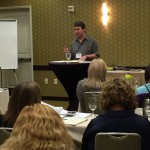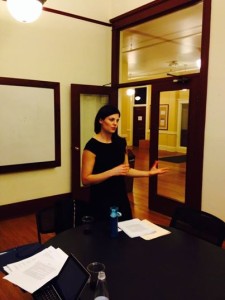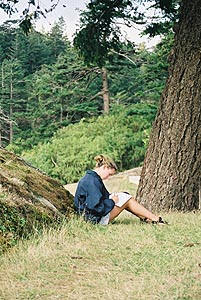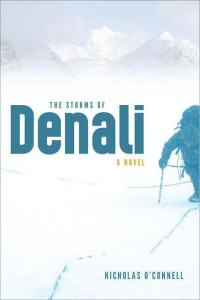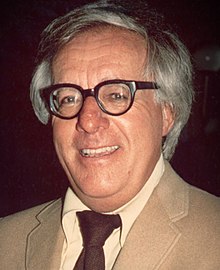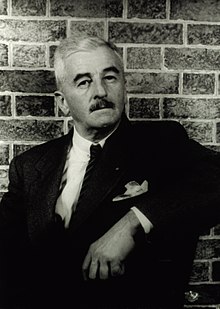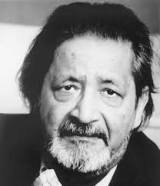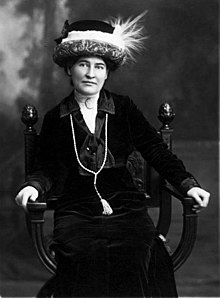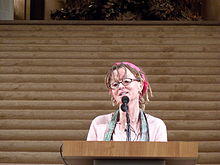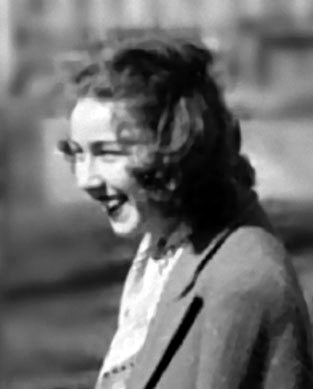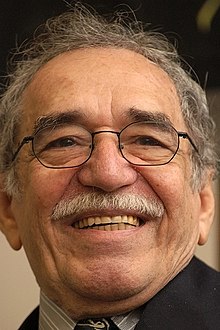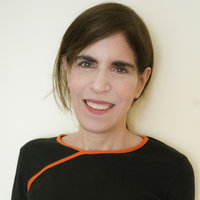The Writer’s Workshop Blog highlights my adventures teaching writing classes, writing stories, articles and books, leading travel, food and wine writing classes to France and Italy, traveling the globe, promoting my books including the novel, The Storms of Denali, and other aspects of the wild and crazy world of writing and publishing. Writing and publishing are changing enormously and I hope this blog will help keep you up to date on some of the changes.
The following story is from Mary Beadles, a student in my 2013 Travel, Food and Wine Writing Class in Montalcino, Italy. I’ll be publishing a number of stories from students in my travel writing class on this blog. They provide a vivid picture of the wonderful places, people and experiences encountered on the trip.
Strangers on a Train
In principal, I have no problem traveling by myself. There’s a lot you can miss if you are constantly surrounded by people. Initial impressions are often interrupted or altered by input from others. And so much local culture and color can be missed during a conversation with a friend, not to mention the loss of freedom to see and do exactly as I choose. And yet, travelling from Florence through the hills of Tuscany alone proved to be plenty challenging, even with a sense of adventure and Fodor’s Italian for Travelers to guide me.
There is no easy way to reach Montalcino from Florence, but the destination is well worth the effort (or so I’d been promised). I was traveling to the ancient hilltop town for a writing seminar on travel, food and wine. The journey would begin with a one-hour train ride to Sienna followed by another hour winding through the hillside on a bus. I’d never traveled alone by train and the bus ride would be a totally new experience. I hated asking for directions and I knew only a smattering of Italian but I had studied the guide book carefully and memorized the bus connection in Sienna. I was confident I could navigate the Italian transportation system with few problems. But there is nothing more deceptive (or dangerous) than the confidence of a fool.
I stepped into Firenze Santa Maria Novella, the main train station in Florence, and was met by a crush of mostly-young travelers carrying massive backpacks with ease. I focused on the task ahead. Buy a ticket to Sienna. To the left was a row of windows below a large sign with a word I recognized. “Biglietti”– Tickets. This was exactly where I needed to be! I smiled with smug satisfaction and followed the line of people until I reached the end which was somewhere along the back wall. It was just now noon—plenty of time. The trains left frequently and, as long as I was on the train before 2P.M. I would have no problem catching the bus from Sienna to Montalcino.
At 1P.M., the line had moved at least ten feet. Now there were only about fifty people ahead of me. I began to worry just a little. If I missed the 1:59 train, I wouldn’t be able to leave Sienna until after five. It would be evening before I reached Montalcino. Time for a new plan. I turned to a friendly-looking young man behind me. “Excuse me. Do you speak English?” I asked.
He smiled, “Yes, I do.”
“Is this the only place I can buy a ticket?”
The boy shook his head. “You can use a machine. Would you like me to help you?”
Problem solved. Soon I had a ticket in hand and was boarding my train. The first row of seats provided space for my bags and a seat for me. Perfect! It was a relief to know that any worries about making this leg of my trip alone were groundless. I settled back as the train pulled away from the station.
It was two or three stops before we cleared Florence. Some passengers had gotten off and others had boarded. At the last stop, a young woman dragging a large suitcase took the seat across from mine. We exchanged smiles before she pulled out a magazine and I turned to watch through the window as the city view gave way to a rural vista.
The train swayed in a gentle rhythm as it rolled down the track. The door at the far end of the car opened and a wild-haired man resembling a caricature of Albert Einstein entered. He was dressed in a shabby dark blue uniform with shiny brass buttons and I watched as he moved from passenger to passenger. The conductor, I realized as he came closer. When it was my turn, I handed him my ticket and waited for its return. Why was he taking so long? Finally, he handed it back, all the while speaking rapid-fire Italian. I shrugged and shook my head — the universal sign for “I have no idea what you’re talking about!” I turned to my fellow passengers. Across the aisle, a young woman looked on in apparent sympathy while the man in front of her watched the proceedings with a smirk that seemed aimed at the conductor rather than me. I assumed they didn’t speak English and would be of no help.
The conductor took back the ticket and pointed to it. “Forty Euro,” he said. I stared back. He held his hand out. “Forty Euro,” he repeated more loudly. Yes, I understood he wanted me to give him forty Euros for some reason. I shook my head. Was I being held up? Was this some kind of train scam I hadn’t heard about? The conductor turned and walked to the end of the car and I allowed myself to hope that was the end of it. But a minute later he was back. “Come with me,” he said.
“What?” Where could he possibly take me on a train? There was nowhere to go but off.
“Come with me.” His impatience with this American seemed to be growing. I stuffed my book and my iPod into my purse and stood to follow him.
“Should I take my suitcase?” I called after him as he strode down the aisle. The passengers seemed enthralled with the drama, particularly the smirker across the aisle. Through his eyes, I began to see the humor in the situation and I found myself playing to my audience. “Are you throwing me off the train?” I called after him, raising my voice and throwing my hands in the air. “Should I bring my bag?” Of course he couldn’t understand anything I was saying, but I hoped he understood that he could not intimidate me. I was also somewhat comforted by the fact there were witnesses.
He stopped in front of a poster on the back wall of the car and put his finger on a paragraph written in English. “Passengers must validate tickets before boarding. Failure to do so may result in a fine up to €40.” Having grown up in a family of lawyers, all I could see were the words “may” and “up to” and more than anything I wanted to argue my case.
“Forty Euro.” The man knew about five words in English and I knew five different words in Italian. There would be no appeal. I handed over forty Euros and took the walk of shame back to my seat. The passengers went back to their books and their music. As my adrenaline dissipated, I just felt like crying. But the young woman across the aisle who had been watching me with obvious sympathy during the entire affair, leaned over and said, “Aso’le!” gesturing toward the receding back of the conductor. I wasn’t sure what she was saying, and then it hit me.
“Asshole?” I asked.
She nodded. “Si. Aso’le!”
And with that one, crude, mispronounced American insult we bonded and I understood that, although I was traveling solo, I wasn’t alone. There were always as-yet-unknown comrades to help along the way. Those like the man with the smirk who reminded me to let humor dispel fear. And the sympathetic kindness of a young woman willing to join me in solidarity against the mini-tyrants we encounter along the way. And even the “aso’les” in this world that bring us all together. When we arrived in Sienna, I gathered my things and took my luggage outside to find the bus that would complete the final leg of my trip to Montalcino. But, along with my luggage, I carried a newly-discovered rule of the road. I might be by myself at the start of my journey, but as soon as I board a train, a bus, a plane, or even a taxi, I’m no longer alone. My traveling companions may be strangers, but for a brief moment in time, we’re all in it together.
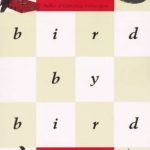
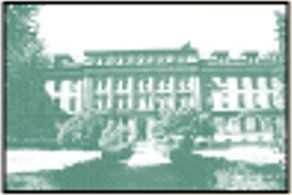 The Writer's Workshop
The Writer's Workshop 